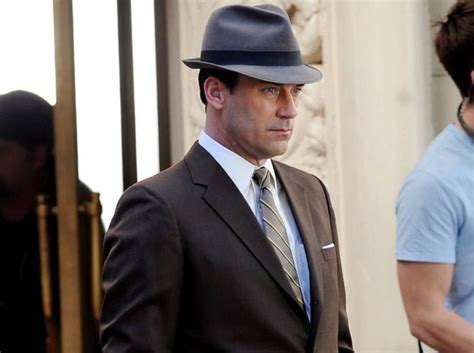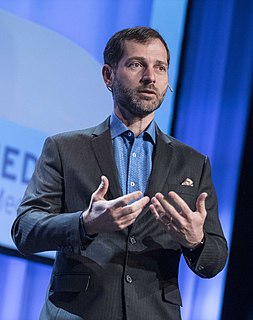A Quote by Pranav Mistry
As far as solving India's problems with technology is concerned, I think there are some wrong assumptions in making computing work at the grassroots. We need to go beyond the notion of technology being all about computers.
Related Quotes
Computers and computing are all around us. Some computing is highly visible, like your laptop. But this is only part of a computing iceberg. A lot more lies hidden below the surface. We don't see and usually don't think about the computers inside appliances, cars, airplanes, cameras, smartphones, GPS navigators and games.
The idea of having more technology solving this idea of hyperactive lifestyle is not really the mainstream problem. I think the real innovation that’s going to be rewarded will be on things like, let’s convert our computers from being tools to being companions. Let’s convert our computers from being utilitarian to being enlightening. These are human needs.
Every disruptive innovation is powered by a simplifying technology, and then the technology has to get embedded in a different kind of a business model. The first two decades of digital computing were characterized by the huge mainframe computers that filled a whole room, and they had to be operated by PhD Computer Scientists. It took the engineers at IBM about four years to design these mainframe computers because there were no rules. It was an intuitive art and just by trial and error and experimentation they would evolve to a computer that worked.
People always think of technology as something having silicon in it. But a pencil is technology. Any language is technology. Technology is a tool we use to accomplish a particular task and when one talks about appropriate technology in developing countries, appropriate may mean anything from fire to solar electricity.
I am extraordinarily fascinated by the future of technology. We are in the early infancy of technology, and we have an opportunity to guide how technology develops and integrates into our lives. I talk a lot about the 'invisible interface,' or the idea that we can utilize technology without being absorbed into a screen.
I think computers have changed things tremendously. At one time, you tended to take the rough with the smooth. But now, because you can go back and stop and start, and have a limitless amount of tracks if anything looks remotely good, we keep it. You've got to go through the agony of sounding very human at first, and then you work on it with the aid of technology. Computers have revolutionized things in many ways allowing me to work to a standard I could have only joked about fourty years ago.
Why doesn't Apple stop for a year and make medical devices? When people talk about technology, that's where I start to get a little hot under the collar because I know that it's the key to solving some of the world's biggest problems. Having a faster, thinner telephone is not one of the world's biggest problems.




































